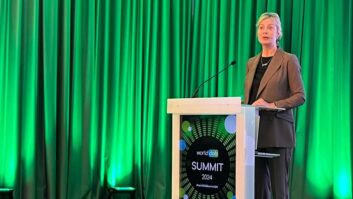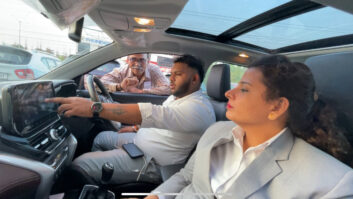The author is membership program director of the National Federation of Community Broadcasters. NFCB commentaries are featured regularly at www.radioworld.com.
Some time ago, I wrote about the need for community radio to take pay and inclusion seriously. I was greeted with a variety of responses. One of the strangest? Stations could not afford to be fair to labor, because they didn’t have the money.
I understand. Stations do wonderful things with the few resources they have. And it is surely a pleasure and a privilege to work in community radio. However, not taking a long-term sustainability mindset can after serious effects later.
Why should you think about your staffing and equity? I assume you appreciate the importance of attracting the right people and agree with labor fairness. I also believe there is a strategic reason for your station to think about equity today.
[Read: Community Broadcaster: D.O.A.?]
To the outside observer coming to a nonprofit or a local business, then hearing from the proprietor that she or he is broke and can’t afford any number of items says troubling things. It communicates instability, possibly poor products and a lack of support. Do troubled businesses feel like places that you want to put your money into, even when you like the business or nonprofit?
If you have an internal station culture where the chorus is one of negativity. Ask yourself if you’d want to put $50, $100 or more in a local nonprofit whose leaders openly talked about their inability to fundraise for even simple items. While it is good to be transparent, a perennial forecast of gloom benefits nobody.
The notion of scarcity is poisonous, because the message only spreads and colors the viewpoint of potential partners, underwriters, communities with no connection to the station and everyone else. These presentations do not convey trustworthiness, viability or a broad base of support.

More than a few stations claim to value inclusion, but fail at the most basic part of that: to create opportunities and futures for diverse voices in our space. Early-career staffers, diverse voices, and people of color are not here to make radio veterans feel good about their community radio stations. We do not show up to fulfill claims of representing the community. We too have families and dreams. Talking about diversity and wanting diverse leaders without creating a real and sustained pathway to emerge into leadership is purely virtue signaling, words that mean something to a few, but contain no action to show you mean it.
This is stated not to shame anyone. Instead it is an intervention about our language, our relevance and our need to imagine differently.
Being in a perpetual state of struggle is a missed opportunity to tap into your potential and growth prospects within our communities. The people on the fence about your station want proof their dollars are going to an organization that is not stagnant. Your detractors will use your own language against you in showing others you can’t be trusted with money, so what else can’t you be trusted with? It is crucial that your organization flips the narrative into one where your station is taking forward steps that create confidence in your vision. Otherwise, simply being there in your community just isn’t enough to help you flourish in the long term.
In leaders people most look for qualities like compassion, trustworthiness, a sense of stability and hopefulness. Success as a community media manager means conveying a vision for the future, tapping in to all these areas. Moreover, it is about avoiding one of the biggest traps in community radio: zero as a reference point.







